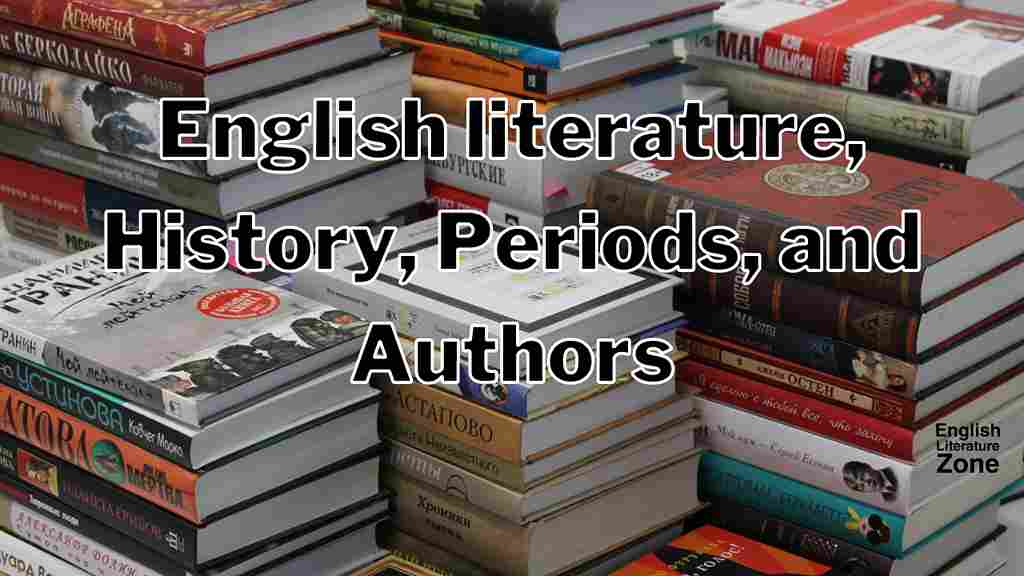Romantic Poetry In English Literature | Romantic Poets In English Literature

Introduction
Poetry is written between 1798 AD to 1837 AD known as “Romantic Poetry”. Literary legend also terms Romantic Poetry as The Return To Native. The romantic period is the reaction against the Age Of Enlightenment. Before the Romantic period, the reasoning was given a lot of importance. In the Romantic age, Romantic poets stressed imagination, passion, emotion, nature, and the life of common men which became the features of Romantic poetry. The romantic age was highly influenced by the ideas of the French Revolution. Romantic poets like Wordsworth & Coleridge supported the ideas of the French Revolution such as the freedom of an individual. The publication of Lyrical Ballads in 1798 by William Wordsworth and Samuel Taylor Coleridge, gave birth to Romanticism in the history of English Literature.
Romantic Poetry
Romantic Poetry has no specific association with love. It is associated with feeling or emotion, in particular with the feeling and emotion related to nature or art but not what we call romantic love.
Features of Romantic Poetry
(a). Reaction Against The Neo-Classicism
The beginning of Romantic Poetry was the movement against Neo-Classical poetry. Neo-Classical poetry was the product of intellect and reason, while Romantic poetry is the product of emotion.
(b). Emotion was the Key to Romantic Poetry
Romantic poetry abounds in motion. Romantic poets stressed expressing subjective emotion and it is usually the poet’s personal experience. Emotions were the heart of Romantic Poetry.
(c). Imagination was Prominent in Romantic Poetry
Apart from emotion, the poets of Romanticism also indulged in plenty of imagination and mysticism in their poems.
(d). Nature of central Romantic Poetry
Another important feature of Romantic Poetry is nature. The poets pick up the different aspects of nature and put them in a new form every time. Nature remains the spirit of all Romantic Poetry.
(e). Supernaturalism
Supernatural elements are found in the most of poems of the Romantic era.
(f). Easily Comprehensive and free verse style
Romantic poets use language that was very easy to understand for the common man. Poets rejected strict poetic meter such as Heroic Couplet.
Poets of the Romantic Period
The most prominent romantic poets are still some of the most popular poets today. The first generation of poets includes – “Samuel Taylor Coleridge” and “Willliam Wordsworth”. The most recognizable name of the second generation was – George Gordon better known as Lord Byron, Percy Bysshe Shelly, and John Keat.
1. William Wordsworth
William Wordsworth was one of the founders of English Romanticism. P. B. Shelly another great poet of Romanticism called him Poets of Nature and he himself called him. A Worshiper Of Nature. He defined his and Coleridge’s innovative poetry in his preface of lyrical Ballads –
”Poetry is the Spontaneous
overflow of Powerful feelings;
it takes its origin in emotion
recollected in tranquility.”
Imagination, Subjectivity, Nature Pantheism, and Mysticism, Humanism are the basic theme of Wordsworth’s poetry. His most famous poems are I Wander Lonely As A Cloud, She Was A Phantom Of Delight, The Solitary Reaper, The Lucy Poems and We Are Seven, and Tintern Abbey.
2. S.T. Coleridge
S. T. Coleridge along with Wordsworth is the pioneer of romantic poetry. He is the friend of William Wordsworth. S. T. Coleridge has been greatly influenced by Wordsworth; in fact, it is said that Wordsworth has helped him in writing poetry. He has good observation and a sense of feeling. He not only observes nature but also feels it. He loves landscapes, sceneries, countryside images, rivers, forests, and plants. He finds beauty in them and mentions it in his poetry. Among his world-famous Romantic poem include – The Rime of the Ancient Mariner, Kubla Khan, Christabel, Dejection, and An Ode.
3. Percy Bysshe Shelly
Percy Bysshe Shelly was the most imaginative poet. He regarded poetry as “The expression of the imagination”. Shelly lived in the world of Fancy and Imagination. The major Romantic elements found in their poetry of Shelley are – Love Of Nature, Imagination, Melancholy, Supernaturalism, Hellenism, Beauty, Idealism, and Subjectivity.
He wrote many iconic poems during his short including – “Ode to the West Wind”, “To a Skylark”, and “The Cloud”. According to Donald H. Reiman –
“Shelley belongs to the great
tradition of western writers
that include Dante, Shakespeare,
and Milton.”
4. John Keats
John Keats is the last but the best romantic poet in English literature. He is referred to as a pure Romantic poet. Like other Romantics poets, imagination played a vital role in his poetry. His Ode To A Nightingale is a fine example of eternal beauty. The Eve Of St. Agnes and The Eve of St. Mark are poems based on two different Medieval superstitions. He personified Nature in many of his great odes, that as Ode to Autumn, Ode on Indolence, Ode on a Grecian Urn, Ode on Melancholy, and Ode to Psyche. Keats defined beauty in his Poetry as
“A thing of beauty
is a joy forever.”
5. Lord Byron (George Gardon)
Lord Byron was a well-known Romantic Poet of the second Generation. His poems are deep and reflect his personal feelings. In his literary career, he wrote many poems such as – Child Harold’s Pilgrimage, The Vision of Judgement, Don Juan, and She walks in Beauty.
Conclusion
Thus, Romantic poets of the 19th century write subjective poetry. They themselves became the subject of matter of their poetry. They are guided by imagination which is a great source of creating them. Instead of writing poetry in heroic couplets, they wrote poetry in form of Ode, Lyrics, Elegy, Ballad, and Epic.
Are you struggling to keep up with your English Literature Coursework? Do you need detailed, customized English Literature Notes to help you better understand the texts you’re studying? “Look no further! Our customized paid notes will help you achieve your study goals quickly.
Romantic Poetry In English Literature | Romantic Poets In English Literature Read More »














